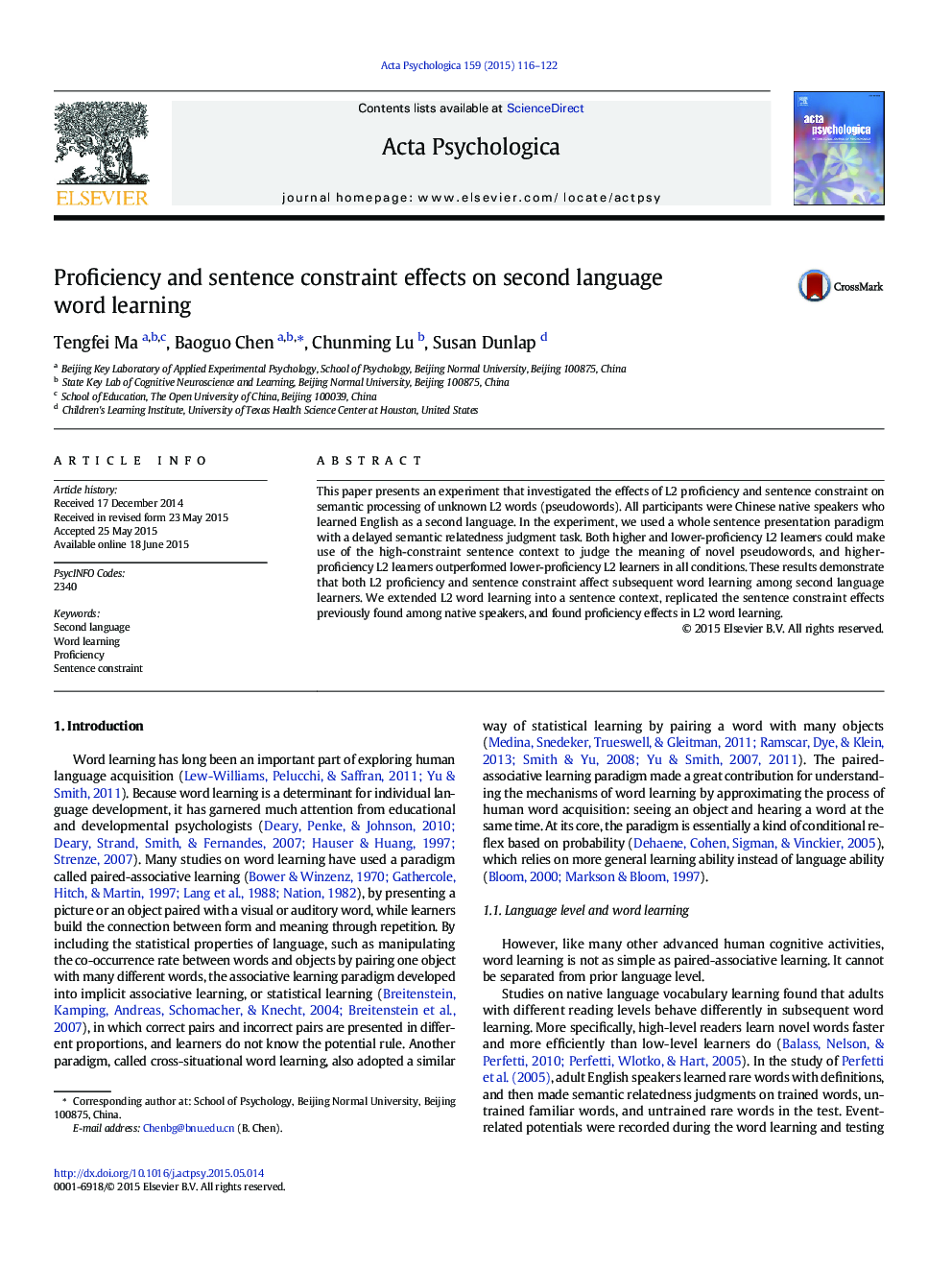| Article ID | Journal | Published Year | Pages | File Type |
|---|---|---|---|---|
| 919722 | Acta Psychologica | 2015 | 7 Pages |
•L2 word learning benefits from high-constraint sentences.•The sentence constraint effect was observed in both high and low-proficiency L2 learners.•Sentence constraint and L2 proficiency both affect L2 word learning.
This paper presents an experiment that investigated the effects of L2 proficiency and sentence constraint on semantic processing of unknown L2 words (pseudowords). All participants were Chinese native speakers who learned English as a second language. In the experiment, we used a whole sentence presentation paradigm with a delayed semantic relatedness judgment task. Both higher and lower-proficiency L2 learners could make use of the high-constraint sentence context to judge the meaning of novel pseudowords, and higher-proficiency L2 learners outperformed lower-proficiency L2 learners in all conditions. These results demonstrate that both L2 proficiency and sentence constraint affect subsequent word learning among second language learners. We extended L2 word learning into a sentence context, replicated the sentence constraint effects previously found among native speakers, and found proficiency effects in L2 word learning.
